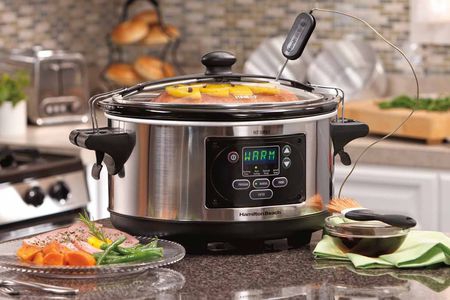Scepticalscribe
Cancelled
- Joined
- Aug 12, 2020
- Posts
- 6,644
Rub the turkey thigh down with some olive oil, salt, pepper and then put into a slow cooker (skin side up). It's spectacular, let it go for 2-3 hours and wow, it comes out moist, perfectly cooked through, slice it parallel to the bone, it's like duck. For folks who use a slow cooker, it probably seems a little weird, not having any extra fluid, but the ambient and direct heat works amazingly well.
And super cheap, we pick up a couple of turkey thighs for < $5.
Sounds delicious.
And thanks (much appreciated) for the recipe.
A slow cooker is not a classic oven, I gather?
Last edited:




